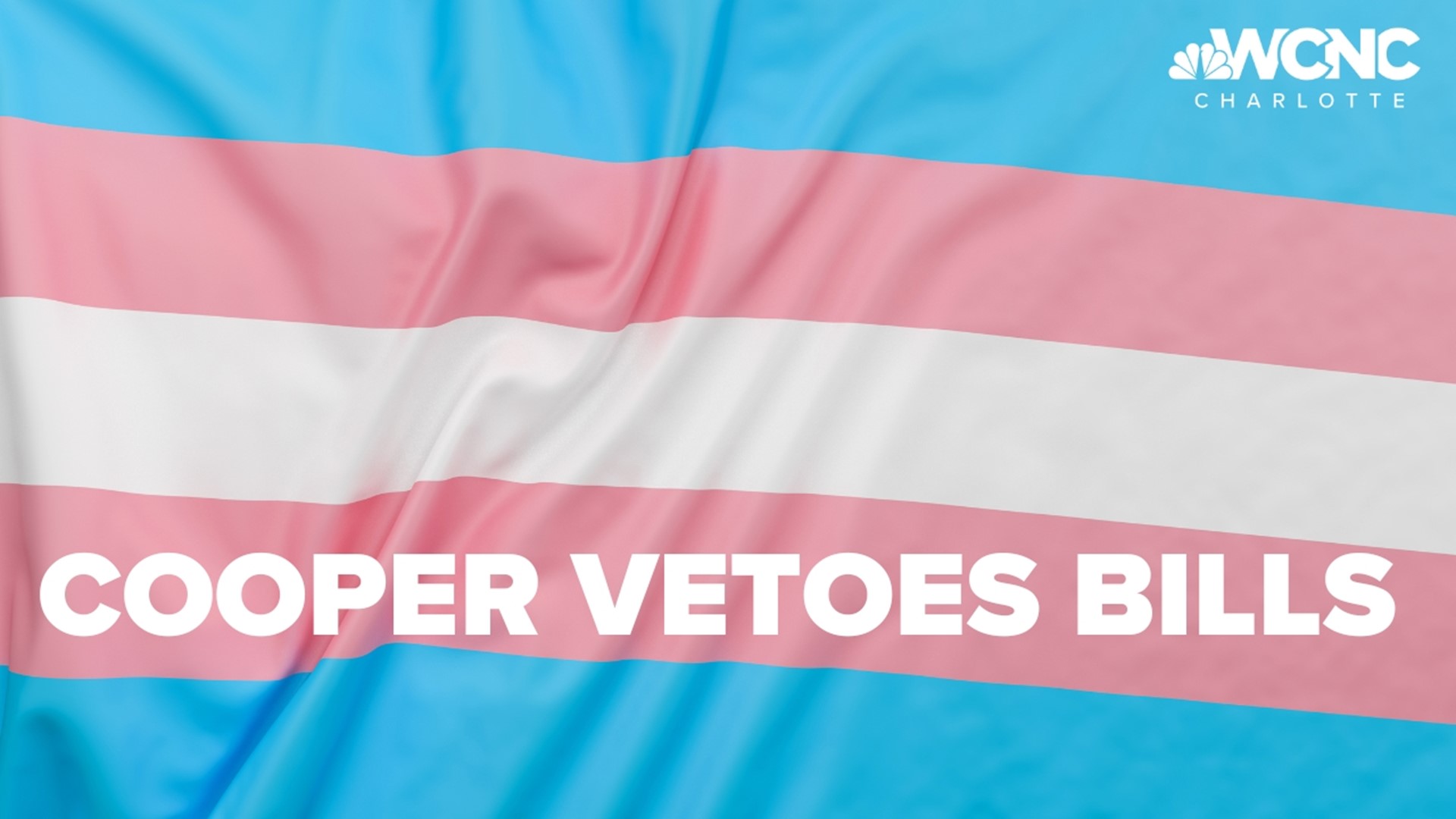RALEIGH, N.C. — North Carolina Governor Roy Cooper vetoed a bill Wednesday that would have prohibited transgender girls in North Carolina from playing on school sports teams that align with their gender identity.
The Fairness in Women's Sports Act passed the GOP-controlled state House 62-43 on June 22. Republicans are expected to override the governor's veto. Much like North Carolina's new restrictions on access to abortion healthcare services, a Republican override would allow the bill to become law.
"We don’t need politicians inflaming their political culture wars by making broad, uninformed decisions about an extremely small number of vulnerable children that are already handled by a robust system that relies on parents, schools and sports organizations," Cooper said in a released statement. "Republican governors in other states have vetoed similar bills because they hurt their states’ reputation and economy and because they are neither fair nor needed."
House Republicans were joined by one Democrat — Rep. Michael Wray of Northampton County — in voting for the measure.
At least 22 other states have now banned trans athletes from participating in the school sports consistent with their gender identity. North Carolina, like many other Republican-led state legislatures, could soon push several other bills across the finish line that target trans youth, including a gender-affirming care ban for minors and a requirement that teachers alert a child’s parents of name or pronoun changes.
The athletics bill would designate sports by sex assigned at birth. Transgender girls would be unable to participate in girls' middle school, high school and college sports.
Restrictions would apply to state universities and community colleges, as well as public and some private middle and high schools. They would not apply to intramural college sports, nor would they prevent trans boys from playing on boys' teams.
Students would also have a right to sue if they are harmed by a trans student violating the restrictions.
Asked repeatedly throughout the legislative process how the gender restrictions would be enforced, bill sponsors did not provide a clear answer.
Bill supporters such as Tami Fitzgerald, executive director of the socially conservative North Carolina Values Coalition, say the legislation is needed to protect the safety and well-being of young female athletes and to preserve scholarship opportunities for them.
“Women and girls who train for countless hours and years in their sports will have a level playing field, and their opportunities will be protected if this legislation becomes law,” she said.
But several Democrats denounced the bill as discrimination disguised as a safety precaution. The restrictions unfairly pick on a small number of students, they argued, noting that only two trans girls had been approved by the state’s high school athletic association to play this year in North Carolina.
“We're sending a very strong message to a very vulnerable group of young people that says you are different, you're not allowed to participate," said Rep. Deb Butler of New Hanover County. “It's cruel.”
The Associated Press contributed to this report

